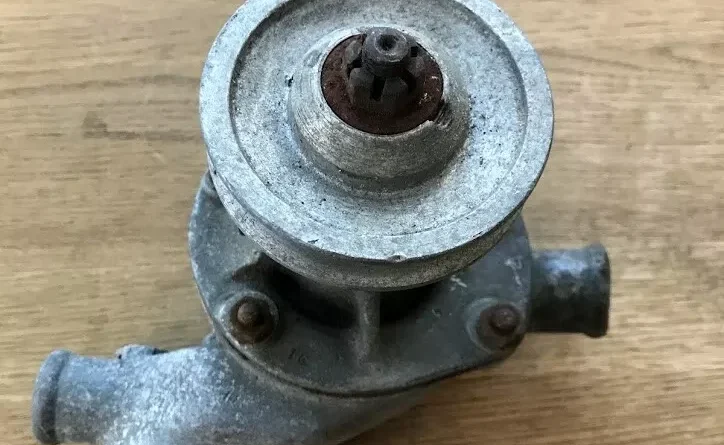Few Symptoms of Water Pump Failure in Cars
In this article we will have a look on few symptoms of water pump failure in cars. The water pump is a crucial component of your car’s cooling system. It circulates coolant from the radiator to the engine, preventing it from overheating. When a water pump fails, it can lead to serious engine damage and costly repairs. Identifying the early symptoms of water pump failure can help you address the issue before it becomes a major problem. Here are the key signs to look out for:
1. Overheating Engine
One of the most common symptoms of water pump failure is an overheating engine. If the water pump isn’t functioning properly, it can’t circulate coolant effectively, causing the engine to overheat.
Indicators of Overheating:
- The temperature gauge rises above normal levels
- Warning light for high engine temperature
- Steam coming from the radiator or engine compartment
2. Coolant Leaks
A failing water pump often results in coolant leaks. These leaks can occur from the pump itself or the gasket that seals it to the engine block. Look for signs of coolant under your car or around the water pump.
Signs of Coolant Leaks:
- Puddles of coolant under the vehicle
- Coolant residue around the water pump area
- Low coolant levels in the radiator or coolant reservoir
3. Whining or Grinding Noise
A failing water pump can produce a high-pitched whining or grinding noise, caused by a loose or worn-out bearing inside the pump. This noise often increases with engine speed.
Characteristics of Noise:
- Whining sound that gets louder with acceleration
- Grinding noise from the front of the engine
- Unusual noises when the engine is running
4. Rust or Corrosion
Over time, the water pump can develop rust or corrosion, especially if the coolant hasn’t been changed regularly. Rust and corrosion weaken the pump, leading to leaks and reduced efficiency.
Checking for Rust:
- Inspect the water pump for rust or corrosion
- Look for discoloration or rough spots on the pump
- Check for rust particles in the coolant
5. Poor Heating Performance
If the water pump is failing, it might not circulate coolant properly, affecting the car’s heating system. You may notice that the heater blows cold air even when the engine is warm.
Heating Issues:
- Heater blows cold air
- Inconsistent heating performance
- Slow to warm up the cabin
6. Steam from the Radiator
Steam or vapor coming from the radiator or engine compartment is a clear sign of overheating, often linked to water pump failure. This occurs when the coolant can’t circulate properly and the engine gets too hot.
Signs of Steam:
- Steam rising from under the hood
- Visible vapor from the radiator area
- Engine running hotter than normal
7. Loose or Wobbly Water Pump Pulley
A damaged or failing water pump can cause the pulley to become loose or wobbly. This can be checked by manually inspecting the pulley with the engine off.
Checking the Pulley:
- Turn off the engine and locate the water pump pulley
- Check for any looseness or wobbling
- Ensure the pulley spins smoothly without resistance
Recognizing the symptoms of water pump failure early can save you from extensive engine damage and costly repairs. If you notice any of these signs, it’s important to have your vehicle inspected by a professional mechanic as soon as possible. Regular maintenance and timely replacement of worn-out components are key to keeping your cooling system and engine in optimal condition.
For more automotive tips and maintenance advice, visit our blog and stay informed about the best practices for vehicle care.
Buying a used VW. Buying used vauxhall, BMW, Jaguar, Ford, Volvo, Range rover, Bentley, Aston Martin, Porsche, Ferrari, Lamborghini, Maserati, Hyundai, Tesla, Honda, Pagani

